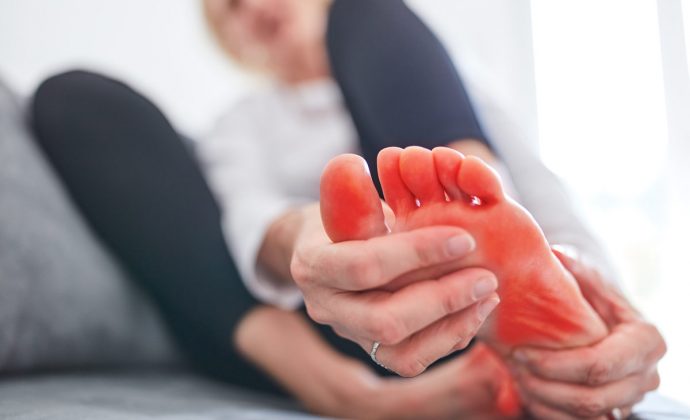When your feet have decreased sensation, as is the case with peripheral neuropathy, your ability to recognize and react to something that might injure your foot–such as an ingrown nail, a wound, an infection, etc.–may be significantly impaired. Delaying care can allow a minor problem to rapidly become more serious. Early detection of a problem is the best way to minimize the damage it may cause. It is important that people with peripheral neuropathy take the following precautions:
- Wear shoes that fit well and are designed to accommodate feet with decreased sensation. Because feet tend to swell at the end of the day, it is best to shop for shoes in the late afternoon or evening. Medicare and some other health insurance plans will pay for these shoes if you qualify.
- Inspect your feet every day to make certain there are no wounds, redness, ingrown nails, infections, pus, etc. If you can’t bend down to properly inspect your feet, have someone else do it for you or use a mirror.
- Never walk barefooted–even in your house.
- Avoid walking barefooted on the sand. In the summertime, the sand may be quite hot and you may burn the bottom of your feet–especially if your feet have decreased sensation. There may be sharp objects, such as shells or glass, hidden just beneath the surface.
- In the wintertime, make certain that your feet are adequately protected from the cold.
- Dry your feet well and use antifungal foot powders.
- Always check the inside of your shoes, before you put them on, for pebbles or other objects that may injure your feet. Always check the inside of your shoes for defects in the lining that may irritate your skin.
- Never put your feet into a hot tub or jacuzzi without first determining that the temperature of the water will not burn you.
- Don’t be a bathroom surgeon. Don’t use sharp instruments on your feet–you are at risk of cutting yourself and not feeling the injury.
- See a podiatrist to have your toenails and corns and callouses regularly treated. Many insurance plans, including Medicare, will pay for this.
- See a podiatrist or other health care specialist immediately if you develop a wound, swelling, redness or an infection in your feet or legs.


